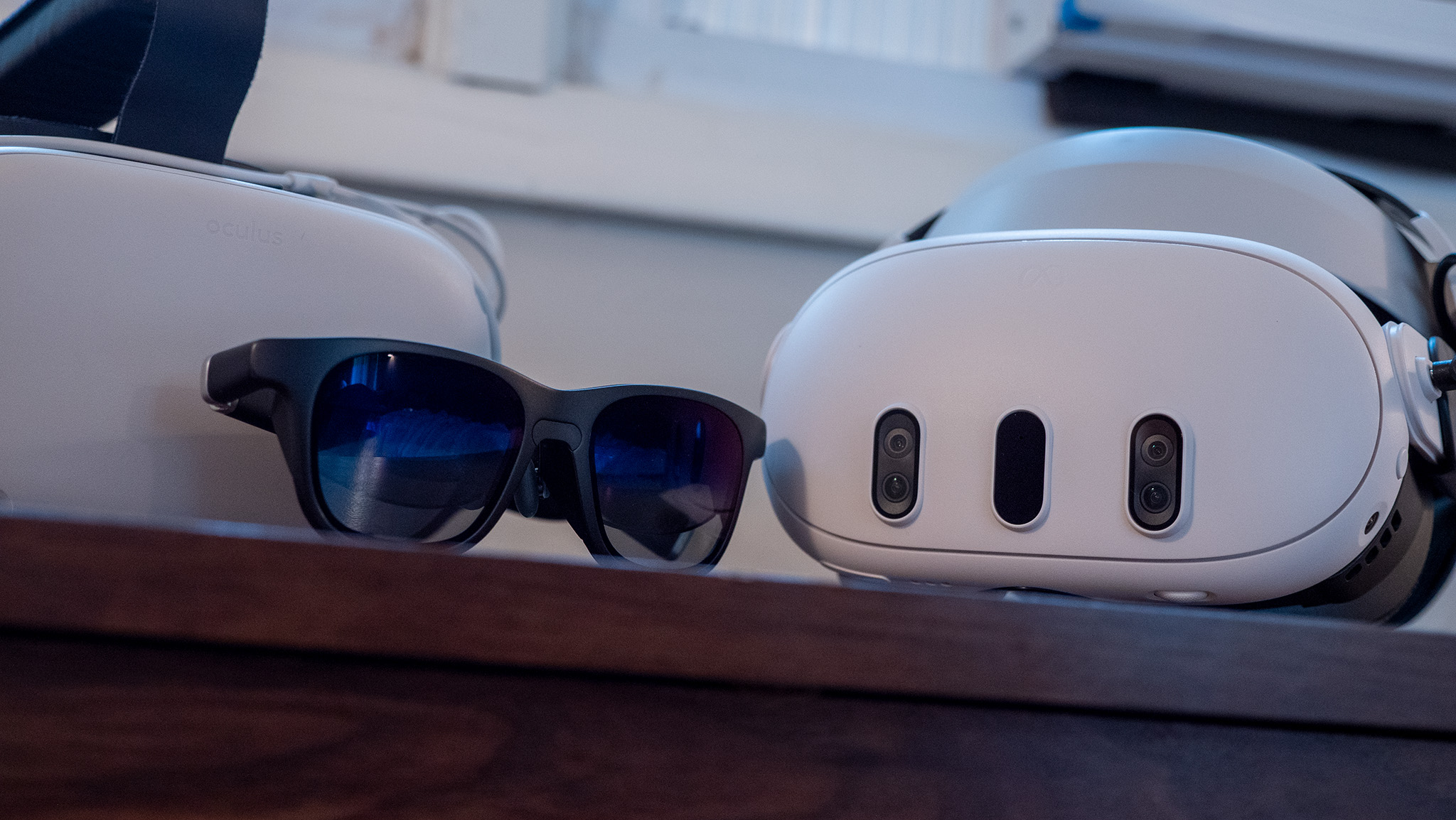

In his weekly column, Android Central Senior Content Producer Nick Sutrich delves into all things VR, from new hardware to new games, upcoming technologies, and so much more.
Every company seems to have at least one annual conference these days, and Meta's own event is called Meta Connect. This year's Meta Connect 2024 takes place on September 25, with Meta CEO Mark Zuckerberg taking the stage at 10 a.m. PT to announce the latest and greatest Meta products and services.
At the show, we're expecting to see a brand-new VR headset, a pair of advanced smart glasses, and maybe even a few big game announcements thrown in for good measure. Last year, we got the excellent Meta Quest 3 and Ray-Ban Meta Smart Glasses, both of which were well-reviewed by us and many across the internet.
In fact, Ray-Ban Meta Smart Glasses are easily the best smart glasses you can buy today, but Meta's up-and-coming pair may very well blow them out of the water. And that new headset looks to be the most affordable one yet, especially considering the rate of inflation with tech gadgets these days. Here's everything we expect to see at Meta Connect 2024.
Meta Quest 3s
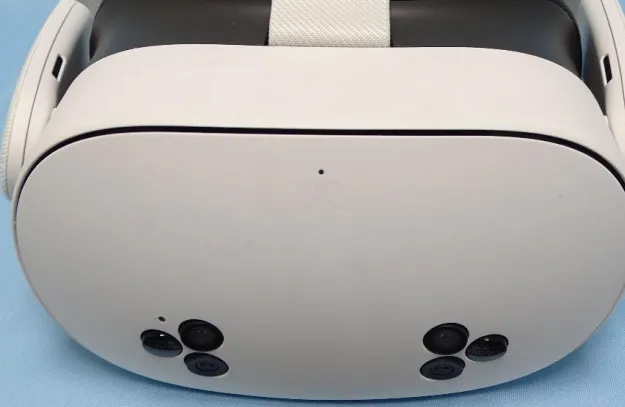
The name Meta Quest 3s almost seems to be referring to more than one Meta Quest 3 headset, but rumor has it that Meta's up-and-coming budget VR headset is called just that. Once known as the Meta Quest Lite, the Meta Quest 3s is supposed to pack the same processor as the powerful Meta Quest 3, all in a slightly smaller headset than a Meta Quest 2.
That means it'll be able to play Meta Quest 3-exclusive games like the upcoming Batman Arkham Shadow and Alien Rogue Incursion, among a bunch of other Quest 3-exclusive titles that have already been released this year. It also means that all of the games that have been visually upgraded for the Quest 3 should also have the same caliber of visuals on the Quest 3s, ensuring that even people who want to save some cash can still get the best VR games around.
While the Meta Quest 3 starts at $499, the Meta Quest 3s is said to drop that price to an impressive $299, or the same price the Oculus Quest 2 debuted at back in 2020. Given that consoles like the PlayStation 5 have seen price increases since launching in 2020, and new versions like the PS5 Pro are debuting at $700-plus, it's refreshing to see a new console—the Quest 3s—debut at the same price as one from a few years back.
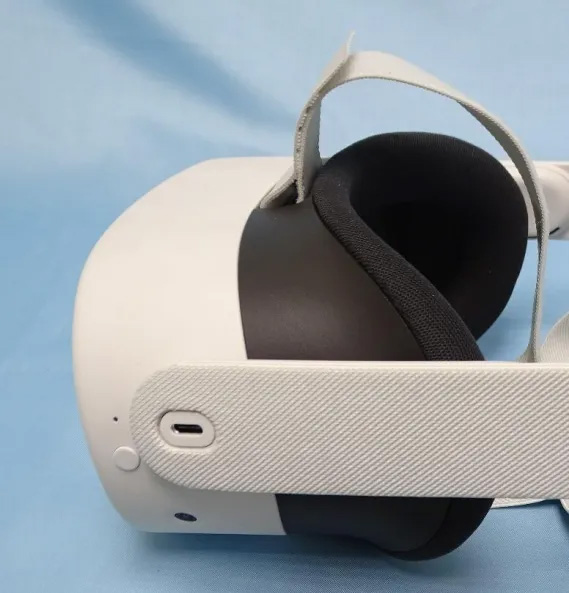
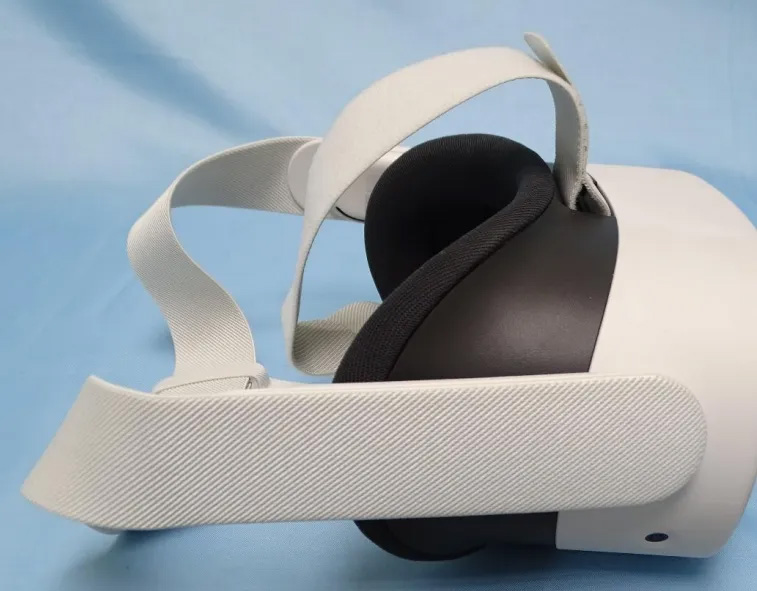
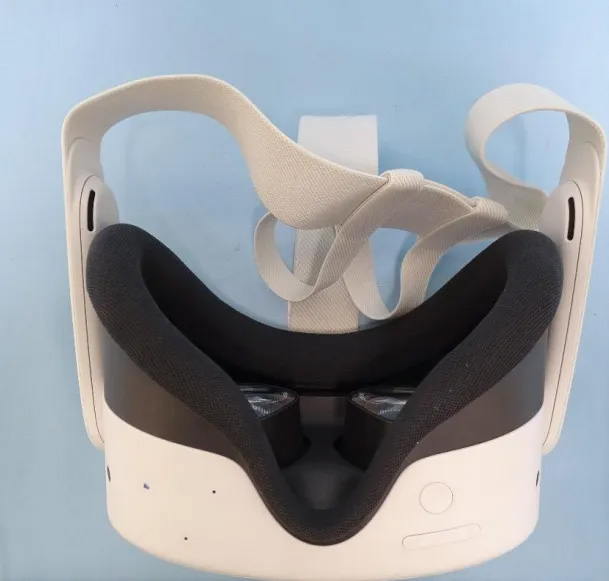
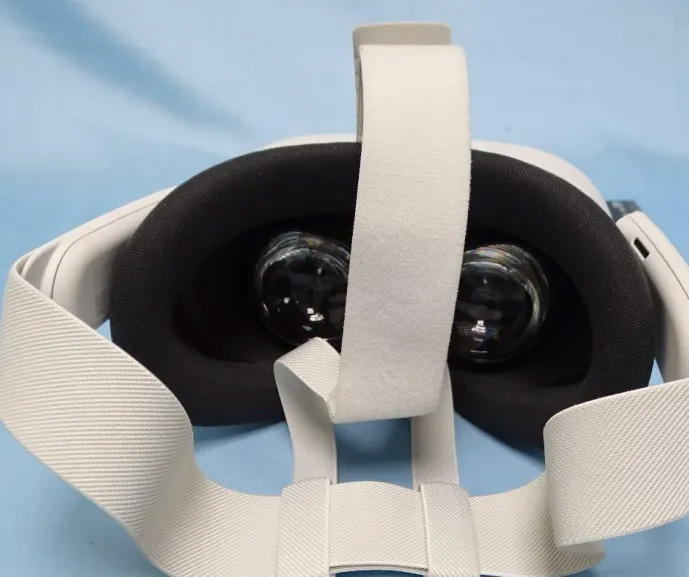

Of course, cutting $200 off the price tag means there are concessions to be had. The Quest 3s is slated to launch with the same Fresnel (pronounced fruh-nel) lenses from the Quest 2, which are bulkier and aren't as clear as the pancake lenses in the Quest 3.
Because of the size difference, the Quest 3s will be a larger headset than the Quest 3, but, as I said before, leaks show that Meta was able to make it physically smaller than the Quest 2.
Meta also looks to be taking off the 3.5mm headset jack for the Quest 3s, which means you'll need to pick up a pair of PrismXR Vega T1 earbuds, which are specifically designed for a Quest, if you don't want to use the onboard speakers.

But while those things are a downgrade, most of the rest of the Quest 3 experience seems to be intact. On top of cutting-edge graphics, the Quest 3s is said to feature color passthrough with the improved clarity Meta delivered on the Quest 3 a few months ago.
Quest 3s leaks note that the headset will ship with four IR tracking cameras, two 4MP color passthrough cameras, and two IR illuminators for depth sensing. Those IR illuminators could mean the headset will even work in the dark, which would be a first for any Quest headset. If you wanted to do this before, you'd have to spend $20 or so on an IR illuminator that plugged into the headset's USB-C port.
The Quest 3s is also said to be shipping with the same controllers the Quest 3 ships with, meaning advanced haptic feedback and a significantly smaller profile when compared to the Quest 2's controllers, which featured giant tracking rings around each controller filled with LEDs.
New Meta Horizon headsets
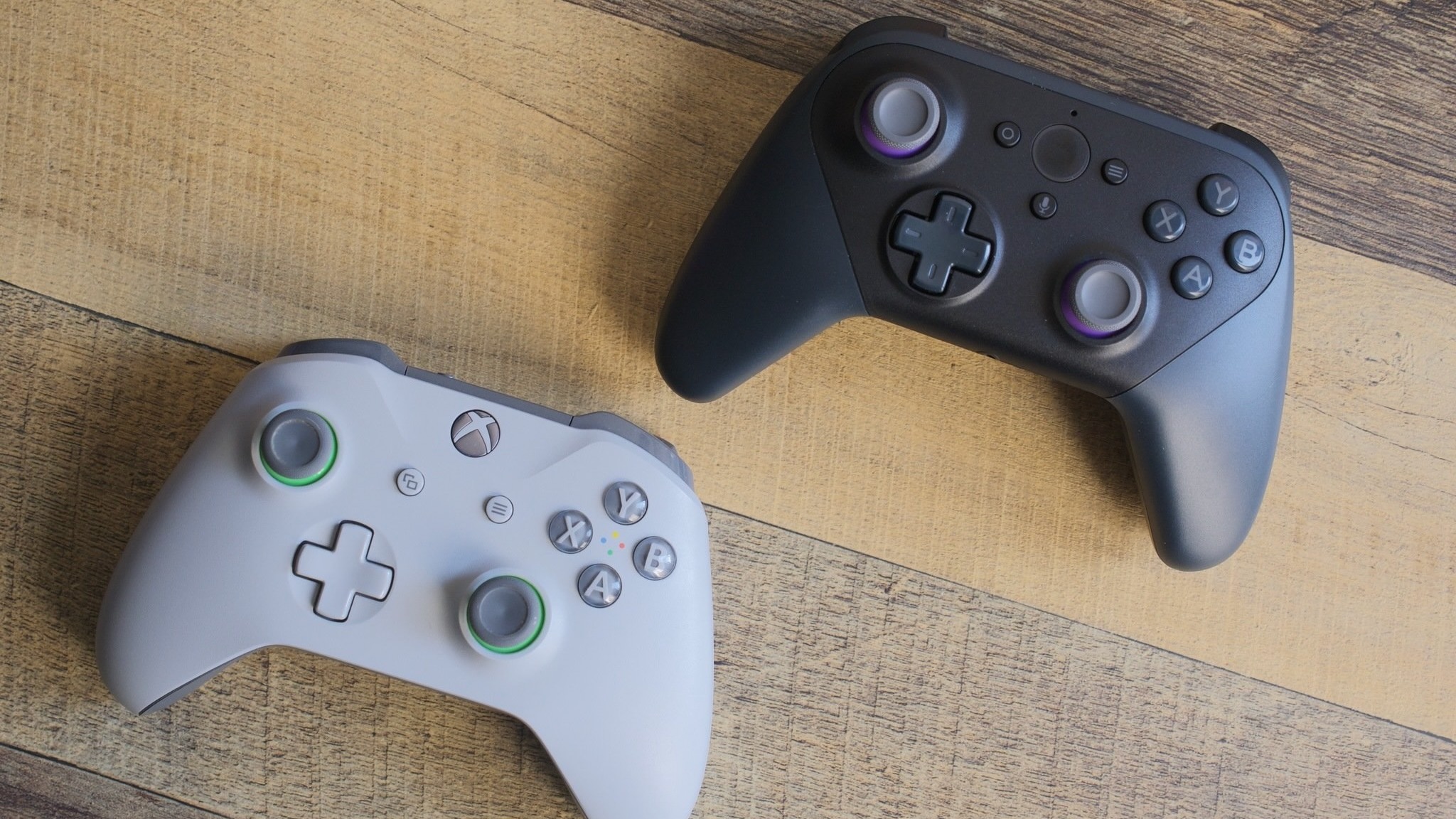
Back in the Spring, Meta announced that the operating system that powers the Quest would be licensed out to other companies to make new VR hardware. In essence, Meta Horizon OS would become the Android of VR, as companies like ASUS ROG, Lenovo, and even Microsoft Xbox would soon be making VR headsets powered by the same OS.
We're expecting to see at least one of these headsets at Meta Connect 2024, which would give us a good look at how each of them differentiates from headsets like the Meta Quest 3 and Meta Quest 3s.
Since all of them run the same operating system, Meta would likely be the one delivering the OS updates while the hardware partners would be the ones to develop new headsets. This seems to be a similar structure to Windows, where Microsoft makes an operating system that powers billions of devices worldwide and develops all the updates, but also makes its own line of Surface hardware that acts as a sort of "reference" or "pure" device for its OS vision.
Meta Horizon OS could become the Windows or Android of VR, but we'll have to wait and see which model Meta goes with when it's expected to detail things at Meta Connect 2024.
However, depending on how Meta structures things, it could also mean that the Meta Quest line becomes the "Pixel of VR. " Google develops phones like the Google Pixel 9 while simultaneously developing the Android operating system, which runs on billions of other devices. However, unlike Microsoft, Google's build of Android isn't pushed out to devices made by other companies.
Instead, companies like Samsung take Google's code, add their own features and looks to it, and then ship that to their devices. We'll have to wait and see which format Meta goes with, and hopefully, that'll all be revealed at Meta Connect 2024.
Meta Quest games announcements

We already got our hands on the upcoming Quest 3-exclusive Batman Arkham Shadow game, and while Meta just closed one of its internal studios, the company still has just under a dozen other studios working diligently on other first-party games for its headsets.
In total, Meta's studios include:
- Armature Studio — Resident Evil 4 VR (2020)
- Beat Games — Beat Saber (2018)
- BigBox VR — Population: One (2020)
- Camouflaj — Iron Man (2020`) and the upcoming Batman Arkham Shadow
- Downpour Interactive — Onward (2019)
- Sanzaru Games — Asgard's Wrath 2 (2023)
- Twisted Pixel Games — Path of the Warrior (2019)
- Unit 2 Games — likely working on Horizon Worlds content
- Within — Supernatural (2020)
As you can see from the list, the only studio that has released anything recently is Sanzaru Games with last year's superb Asgard's Wrath 2, which I dubbed the greatest VR game of all time. Other than that, Camouflaj has Batman this year, but we have no official confirmation of what any of the other studios are working on right now. Hopefully, that changes at Meta Connect 2024.
Next-generation AR glasses

Shortly after the Meta Horizon OS announcement, I got the opportunity to interview Meta's head of AR glasses hardware, Caitlin Kalinowski. In the interview, she discussed the upcoming Meta AR glasses product that the company has been working on for years, calling it the "OMG moment that AR needs."
While I had thought she was referring to Project Nazere in that interview, later teasers and leaks pointed to the actual reveal this year being for Project Hypernova or Project Orion, two additional AR projects in a long list of prototypes that cost the company billions of dollars to develop each quarter.
No matter which of the many prototypes Meta decides to show off publicly, we know the company is hard at work on the future of AR glasses, a product category CEO Mark Zuckerberg will be the "Holy Grail" of the way we interact with technology in the future.
In short, true AR glasses will house displays inside a pair of glasses that will be able to overlay digital objects onto the real world. We're already used to this with things like Google Maps Live View or even Pokemon Go, but having them on your face would make things not only a lot easier but also a lot more believable.
AI, AI, and more AI
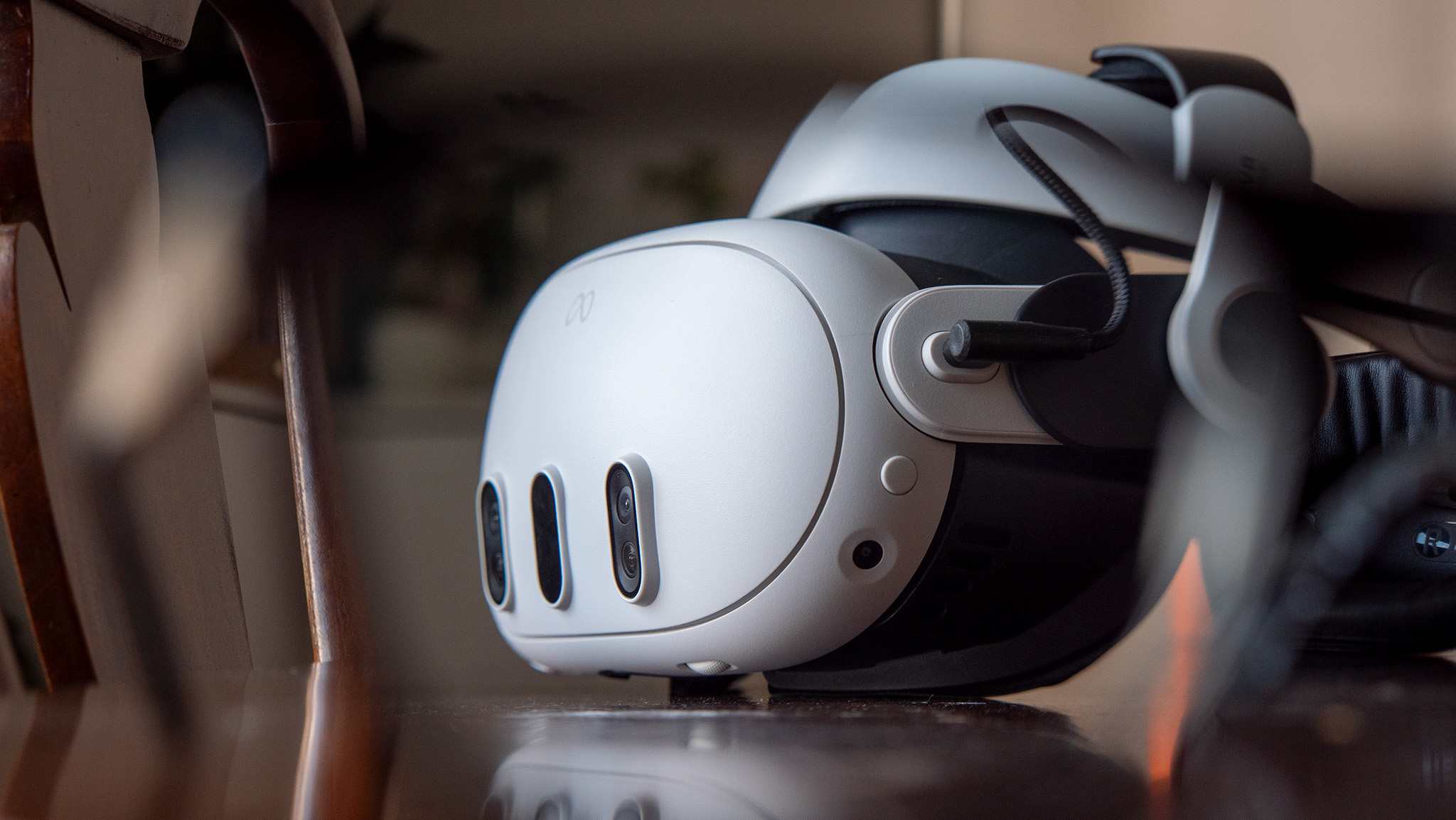
I saved this one for last because I feel like everyone is pretty tired of hearing the term "AI" this year. Meta has been pushing its AI platform out to more and more devices throughout the year, including a launch of Meta AI on the Quest at the end of July and the same technology on Ray-Ban Meta Smart Glasses a few months before that.
Since Meta's AI platform can be injected into the company's biggest platforms—Facebook, Instagram, and Whatsapp—I fully expect to see them announce something new at Connect and how it can help bridge the gap between iOS, Android, Windows, and other platforms.
Match your style and get the tech you want with Ray-Ban Meta Smart Glasses, the most-loved smart glasses ever made. It's got hands-free video recording and photo capture, live streaming, and built-in speakers for a great listening experience. You can even get prescription lenses if you need them!







